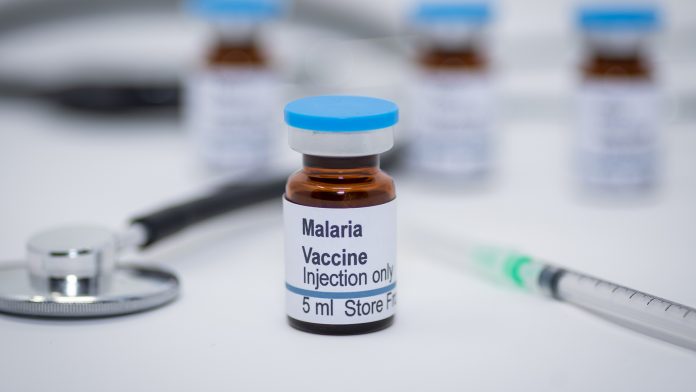
In an exciting development for modern medicine, the World Health Organization (WHO) announced last week that it recommends the rollout of the world’s first malaria vaccine. Now, the international agency has expressed that overcoming distribution hurdles will be critical to the vaccine’s success.
The groundbreaking malaria vaccine – called the RTS,S vaccine – has been given the green light by the WHO for extensive use among Sub-Saharan African children and other regions with moderate to high malaria transmission rates. The novel vaccine provides robust protection against the deadly and widely prevalent malaria transmission parasite, P. falciparum.
The creation of the game-changing vaccine is one of the most significant triumphs in modern science; however, substantial hurdles remain in making the malaria vaccine available to those who need it most. WHO experts believe that adequate financing for malaria-endemic countries will be vital for them acquiring the necessary doses and setting up efficient distribution networks.
The vaccine is developed by industry-leading pharmaceutical company GSK, who will supply doses at the manufacturing cost plus 5%, although it is not currently known how much this is.
Simon Kariuki, the chief research officer at the Kenya Medical Research Institute, who was involved in the first trials of the malaria vaccine, said: “Researchers have done their part. It is now upon governments to quickly review their malaria control programmes to adopt the vaccine.”
Prevalence of malaria
In the most recent World Malaria Report, in 2019, it was estimated that there were 229 million cases of malaria globally, with 94% of all cases and deaths occurring in the WHO African region. According to UNICEF estimates, just every two minutes, a child under the age of five dies from the devastating disease. The WHO estimates that malaria is accountable for around 260,000 deaths each year in African children under the age of five.
Matshidiso Moeti, the WHO’s regional director for Africa, said: “The recommendation marked a milestone in Africa’s long wait for an effective malaria vaccine. It offers a glimmer of hope for the continent, which shoulders the heaviest burden of the disease, and we expect many more African children to be protected from malaria and grow into healthy adults.”
Malaria vaccine development
The initial pilot programme of the revolutionary malaria vaccine began in 2019 in Ghana, Kenya, and Malawi, reaching over 800,000 children. The vaccine was administered in three doses to children between the ages of 17 months and five years, with a fourth dose given 18 months later, achieving a 50% efficacy in preventing malaria.
Experts believe the vaccine will increase equity in access the malaria prevention, providing a cost-effective method for those who lack existing prevention methods such as bed nets. However, health specialists have reiterated that other malaria interventions are still crucial, as the vaccine only achieves around 30% effectiveness in reducing severe cases of the disease.
Brian Greenwood, professor of clinical tropical medicine at the London School of Hygiene and Tropical Medicine, said: “RTS,S did not provide complete protection but had great potential to reduce death and illness in high burden areas, especially when combined with other interventions such as seasonal malaria chemoprevention and bed nets”.
Don Mathanga, director of the Malaria Alert Centre at the University of Malawi, commented: “The vaccine is a welcome intervention in this region where a decline in malaria has plateaued, and in countries such as Malawi, the cases have been rising. This vaccine will reduce devastating effects of malaria in the region and support its economic growth.”
Vaccine rollout
Moving forward, the WHO has warned that rapid deployment of the malaria vaccine will depend on how quickly countries adopt the treatment and their availability of resources to support its rollout, urging countries to enter negotiations with the WHO to ensure immediate access to it.
Kariuki said: “It’s a golden opportunity for countries to have this vaccine as mosquitoes are increasingly becoming insecticide-resistant and could render bed nets ineffective, leading to a rise in malaria cases. Countries such as Kenya have the capacity to store the vaccines and could easily scale up their distribution. Uptake in the pilot countries was promising, and I expect no challenges administering the requisite number of doses more broadly.”

























